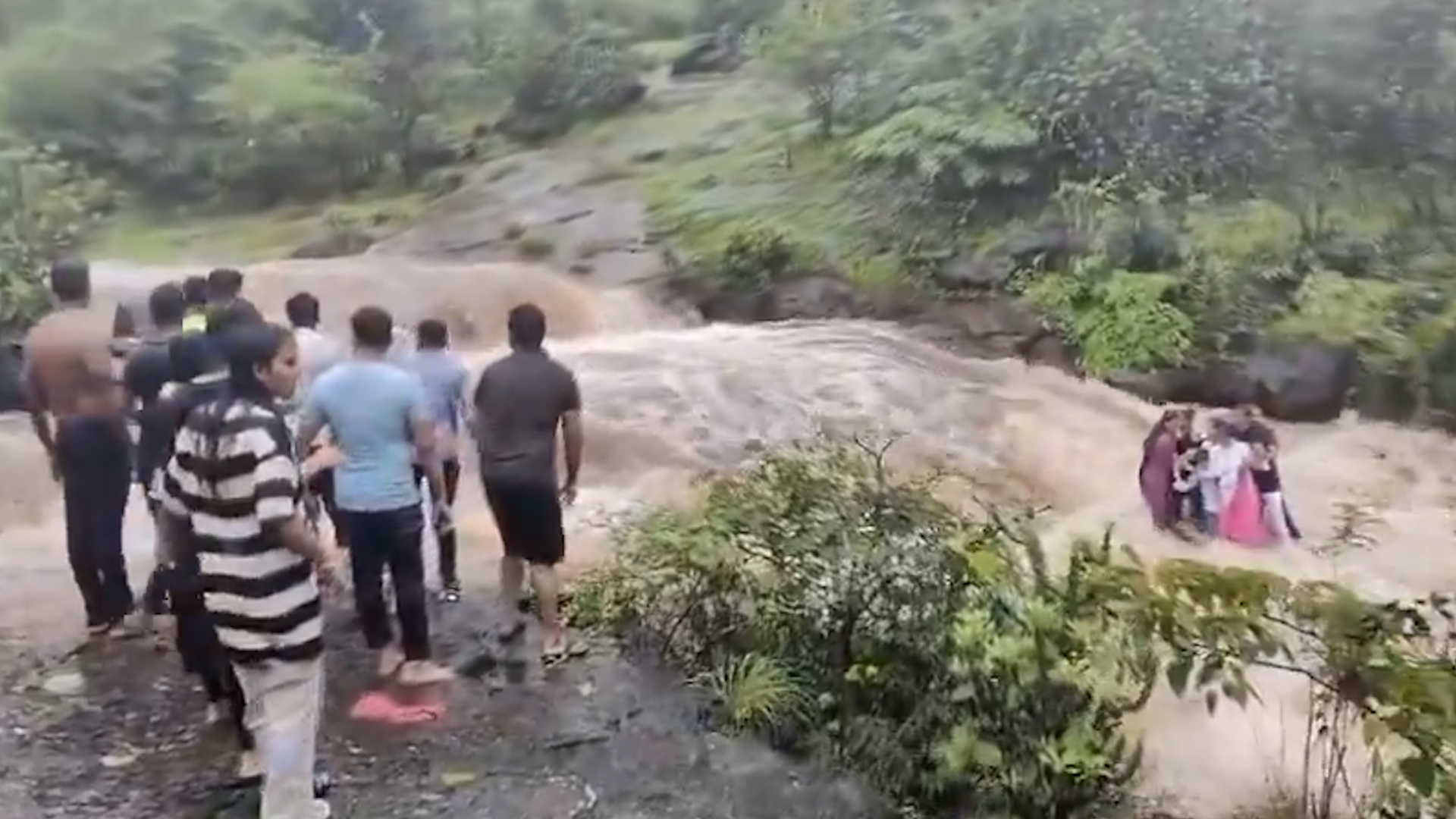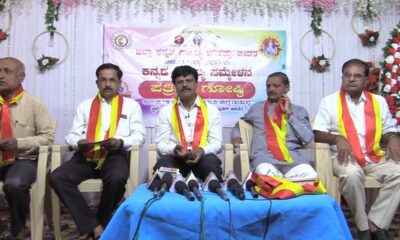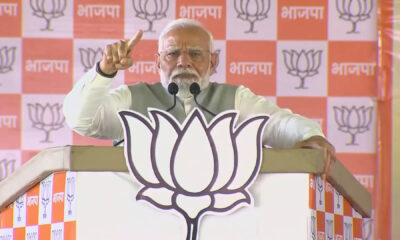india
Tragic Drowning at Lonavala’s Bhushi Dam: 5 Lives Lost
A heart-wrenching tragedy occurred at Lonavala’s Bhushi Dam, Pune, as sudden rainwater swept away five people, including four children. Rescue operations are underway.

Lonavala, a popular hill station near Pune, witnessed a devastating incident on Sunday afternoon, around 1:30 PM, when sudden strong water currents swept away and drowned five people, including four children, near the Bhushi Dam’s waterfall. This tragic event has left the community in shock and mourning.
The Incident Unfolds
The incident occurred near the backwaters of Bhushi Dam, behind the Railway’s rest house, a location known for its picturesque waterfall. The area, usually bustling with tourists, turned into a scene of despair as the unexpected surge of water caught the victims off guard.
Pune Rural Superintendent of Police (SP) Pankaj Deshmukh provided details about the search and rescue operations that were promptly initiated. According to SP Deshmukh, the bodies of a 40-year-old woman and a 13-year-old girl were recovered soon after the incident. However, the search continues for three children, including two 6-year-old girls and a 4-year-old boy, who remain missing.
The Victims
It appears the victims were part of a family enjoying a day out near the waterfall. The heavy rainfall in the Lonavala region, which started early Sunday morning, led to the overflow of the Bhushi Dam, intensifying the flow of waterfalls and creating dangerous conditions.
SP Deshmukh explained, “The family seemed to have slipped into the waterfall, approximately two kilometers away from Bhushi Dam, and tragically drowned in the reservoir downstream.” The sudden and severe change in water flow left the victims with little chance to react or escape.
Rescue Efforts
The rescue operations, although hampered by continuous rain and difficult terrain, saw the involvement of local trekkers familiar with the area. These individuals played a crucial role in aiding the official rescue teams. Despite their best efforts, the search for the missing children continues with hope and determination.
As night fell, the news agency ANI reported that another body had been recovered, bringing the total confirmed deaths to three. However, due to fading light and increasing risks, the rescue operations were halted for the day, only to resume at first light.
Impact on the Community
The tragic incident has cast a somber mood over the Lonavala region, particularly among local residents and tourists who frequent Bhushi Dam and its surroundings. Known for its natural beauty and serene environment, the area is now a stark reminder of nature’s unpredictability and the fragility of human life.
Authorities’ Response
In response to the tragedy, authorities have issued warnings to tourists and locals to exercise extreme caution when visiting water bodies during the monsoon season. The Bhushi Dam, a well-known tourist hotspot, is particularly prone to overflow during heavy rains, making surrounding areas hazardous.
Local police have also increased their patrols and have been working closely with rescue teams to ensure the safety of visitors. Additional signage and barriers are being considered to prevent similar incidents in the future.
The Road Ahead
As the search for the missing children continues, the community remains hopeful that they will be found soon. The authorities are committed to ensuring such tragedies are averted in the future through increased safety measures and awareness campaigns.
This incident serves as a poignant reminder of the need for vigilance and respect for nature’s power, especially during unpredictable weather conditions. The loss of five lives, particularly four young children, is a heartbreaking reality that underscores the importance of safety in natural settings.
Conclusion
The tragic drowning at Bhushi Dam has left an indelible mark on the Lonavala community and serves as a cautionary tale for all who venture into nature’s beauty. As rescue operations continue and the community rallies in support of the affected family, it is hoped that increased awareness and safety measures will prevent such heartbreaking incidents in the future.
india
Congress Slams Waqf Bill as Unconstitutional, Vows to Fight in Supreme Court
In a bold move, the Congress party has announced plans to challenge the recently passed Waqf (Amendment) Bill, 2025, in the Supreme Court, labeling it a direct assault on India’s Constitution and the rights of the Muslim community.

In a bold move, the Congress party has announced plans to challenge the recently passed Waqf (Amendment) Bill, 2025, in the Supreme Court, labeling it a direct assault on India’s Constitution and the rights of the Muslim community. The legislation, which cleared both houses of Parliament after heated debates, has sparked widespread controversy, with opposition leaders arguing it undermines religious autonomy and equality.
The Waqf Bill, passed by the Lok Sabha with 288 votes in favor and 232 against, and later by the Rajya Sabha with 128 votes to 95, now awaits President Droupadi Murmu’s assent to become law. However, Congress leader Jairam Ramesh, the party’s General Secretary, took to X to declare that the Indian National Congress (INC) will soon contest the bill’s constitutionality in the nation’s highest court. “We are confident and will continue to resist all assaults of the Modi government on the principles, provisions, and practices contained in the Constitution of India,” Ramesh stated, emphasizing the party’s commitment to protecting constitutional values.
The bill introduces significant changes to the Waqf Act of 1995, including the inclusion of non-Muslim members in Waqf Boards and the Central Waqf Council—a move critics argue is discriminatory and lacks justification. Opposition leaders, including Congress and AIMIM chief Asaduddin Owaisi, have slammed the legislation for imposing arbitrary restrictions on Waqf property management, which they say violates Articles 14, 25, 26, 29, and 300A of the Constitution. These articles safeguard equality, religious freedom, minority rights, and property rights, respectively.
Opposition Leaders Rally Against Controversial Waqf Amendment Bill, Citing Threats to Muslim Rights
Congress MP Mohammad Jawed, who has already filed a petition in the Supreme Court, argued that the bill disproportionately increases state control over Waqf affairs compared to other religious trusts, such as those of Hindus and Sikhs, which enjoy greater self-regulation. The amendments also remove the Waqf-by-user doctrine—a principle upheld by the Supreme Court that recognizes properties as Waqf through long-standing religious use—further fueling concerns about the erosion of Muslim religious rights.
The debate in Parliament was intense, with the Rajya Sabha discussion stretching over 13 hours. Opposition leaders like Mallikarjun Kharge called the bill “anti-Muslim” and demanded its withdrawal, alleging it was designed to target Waqf properties for eventual privatization. “The intention behind this is questionable,” Kharge said, warning of potential communal polarization. Meanwhile, the government, led by the BJP, defended the bill as a step toward transparency and inclusivity, with Prime Minister Narendra Modi calling its passage a “watershed moment” for socio-economic justice.
The controversy has also led to political fallout, with two Janata Dal (United) leaders resigning in protest over their party’s support for the bill. As the legal battle looms, the Congress party’s challenge in the Supreme Court could set a precedent for how religious and property rights are balanced in India’s diverse democracy. Will the judiciary uphold the opposition’s claims, or will the Waqf Bill stand as a new framework for managing Muslim endowments? The nation watches closely as this contentious issue unfolds.
Karnataka
Karnataka BJP Kicks Off Overnight Protest Against Price Hikes and Muslim Quota
Led by BJP’s state president Vijayendra, the demonstration targets the Congress-led government’s recent price hikes and its controversial decision to introduce a 4% reservation for Muslims […]

Bengaluru, Karnataka: The political air in Karnataka is buzzing as the Bharatiya Janata Party (BJP) launched an overnight protest at Freedom Park in Bengaluru on Wednesday, April 2, 2025. Led by state president BY Vijayendra, the demonstration targets the Congress-led government’s recent price hikes and its controversial decision to introduce a 4% reservation for Muslims in government contracts. With emotions running high, this protest marks a bold stand against what the BJP calls a “burden on the people.”
The protest kicked off at 11 a.m. and stretched into the night, with Vijayendra slamming the Siddaramaiah government for making life tougher for everyday citizens. He pointed to the recent Rs 4 increase in Nandini milk prices—now the third hike since Congress took charge—as an “Ugadi gift” that’s left families struggling. “This government promised relief but delivered only rising costs,” Vijayendra said, vowing to keep the pressure on until the hikes are rolled back.
A Fight Against Rising Costs and Policy Shifts
The BJP isn’t stopping at milk prices. Vijayendra accused the government of jacking up water tariffs, petrol costs, and more, hitting the poor and farmers the hardest. He also took aim at the 4% quota for Muslims in public contracts, labeling it “unconstitutional” and a move that sidelines other backward classes like SCs, STs, and OBCs. “This isn’t about fairness—it’s about appeasement politics,” he argued, promising a statewide awareness campaign starting April 10 to rally public support.
The protest saw a strong turnout, with BJP MLAs, MLCs, former legislators, and district leaders joining in. Vijayendra stressed that this is just the beginning, with plans for demonstrations across all district centers on April 4 and taluk-level protests on April 5. “We’re here to fight for the people, not just make noise,” he added, urging the government to rethink its policies.
A Divided Response
While the BJP rallies its base, the Congress government defends its actions. The milk price hike, they say, supports dairy farmers by covering rising production costs, with Karnataka Milk Federation (KMF) Chairman Bheema Naik noting that prices here are still lower than in states like Gujarat or Delhi. On the Muslim quota, the government insists it’s based on socio-economic backwardness, not religion, aligning with long-standing policies under previous administrations.
Yet, the BJP remains unconvinced, accusing Congress of playing the minority card to win votes. The tension spilled into the streets of Bengaluru, with protesters chanting slogans and holding signs, creating a lively yet tense atmosphere. Police kept a close watch, ensuring the demonstration stayed peaceful as traffic flowed nearby and shops stayed open.
What’s Next for Karnataka?
This overnight protest is more than a one-night stand—it’s a signal of bigger battles ahead. With the BJP gearing up for a statewide movement, and the Congress digging in, Karnataka’s political scene is heating up. Residents are left wondering: Will the government back down, or will this spark a longer fight? For now, the focus is on Freedom Park, where voices of dissent echo into the early morning.
Stay tuned as this story develops. Whether it’s about your grocery bill or community rights, this protest could shape Karnataka’s future. Keep checking for the latest updates on price hikes, Muslim quota debates, and more!
india
Waqf Amendment Bill Heads to Rajya Sabha Today After Lok Sabha Approval
New Delhi: After a heated debate and a late-night vote in the Lok Sabha, the Waqf (Amendment) Bill, 2025, is set to take center stage in the Rajya Sabha on Thursday, April 3, 2025. The bill, which stirred up quite a storm in the Lower House, passed with 288 votes in favor and 232 against […]

New Delhi: After a heated debate and a late-night vote in the Lok Sabha, the Waqf (Amendment) Bill, 2025, is set to take center stage in the Rajya Sabha on Thursday, April 3, 2025. The bill, which stirred up quite a storm in the Lower House, passed with 288 votes in favor and 232 against after more than 12 hours of discussion that stretched into the early hours. Now, it’s the Upper House’s turn to weigh in, and people across India are watching closely.
The Lok Sabha debate kicked off Wednesday afternoon and didn’t wrap up until the clock was nearing 2 a.m. Lawmakers from all sides dug into the details, with the ruling National Democratic Alliance (NDA) pushing hard for the bill’s passage. Alongside the Waqf Bill, the Lok Sabha also greenlit a resolution supporting President’s Rule in Manipur—a busy night, to say the least.
What’s on the Rajya Sabha Agenda?
Today, Union Home Minister Amit Shah is expected to bring the Waqf Amendment Bill to the Rajya Sabha floor. He’ll also move a resolution to confirm President’s Rule in Manipur, which was imposed on February 13, 2025, under Article 356(1) of the Constitution. The Upper House has carved out eight hours for this debate, so buckle up—it’s going to be another long one.
Meanwhile, over in the Lok Sabha, Thursday’s lineup includes the Coastal Shipping Bill, 2024, presented by Minister Sarbananda Sonowal. There’s also a statement from Minister Dr. Chandra Sekhar Pemmasani about pulling funds from the Contingency Fund of India to cover interest on Sovereign Guarantee Bonds for Mahanagar Telephone Nigam Limited (MTNL). It’s a packed day for Parliament as the Budget Session nears its end on April 4.
Why the Waqf Bill Matters
The Waqf (Amendment) Bill aims to shake up how Waqf boards—bodies that manage properties dedicated to religious and charitable causes in the Muslim community—are run. The government says it’s all about boosting transparency and efficiency, but not everyone’s on board. Opposition parties have called it “unconstitutional” and a direct attack on minority rights, sparking protests and fiery exchanges in Parliament.
After the Lok Sabha gave its nod, the bill now faces the Rajya Sabha test. With the NDA holding a strong majority in both houses, the government’s confident it’ll sail through. Still, the opposition isn’t backing down, promising to fight tooth and nail to protect what they see as a cornerstone of India’s secular fabric.
A Late-Night Victory in Lok Sabha
The Lok Sabha session was anything but quiet. Opposition members slammed the government’s handling of Manipur, even as they supported the President’s Rule resolution. Amit Shah defended the Centre’s efforts, saying every step has been taken to restore peace in the troubled northeastern state. By the time the Waqf Bill vote rolled around, the tally—288 for, 232 against—showed the NDA’s numbers held strong.
For many, the bill’s passage feels like a turning point. Supporters say it’ll modernize Waqf property management, while critics fear it’s a step toward centralizing control and sidelining Muslim voices. Either way, the Rajya Sabha debate today will likely set the tone for what’s next.
What’s at Stake?
This isn’t just about a bill—it’s about trust, governance, and how India balances its diverse communities. The Waqf Amendment Bill has already sparked nationwide conversations, from political rallies to social media buzz. As it heads to the Rajya Sabha, all eyes are on how lawmakers will shape its future—and what it means for the country.
-

 india2 years ago
india2 years ago“Major Crash of Sukhoi Su-30 and Mirage 2000 Fighter Jets in Madhya Pradesh”
-

 Sports2 years ago
Sports2 years agoWFI meetings on April 16, elections likely to be discussed
-

 india1 year ago
india1 year agoPM Modi Meets Deve Gowda for Seat Sharing Talks
-

 india1 year ago
india1 year agoBengaluru: False threat to bomb Raj Bhavan
-

 india2 years ago
india2 years ago“AIMIM to Contest 50 Seats in Upcoming Telangana Assembly Elections”
-

 Entertainment1 year ago
Entertainment1 year agoAnant Ambani: Controversy at the Ambani Pre-Wedding Bash
-

 Entertainment2 years ago
Entertainment2 years agoRajinikanth is Moideen Bhai in ‘Lal Salaam’
-

 Videos2 years ago
Videos2 years agoBidar News : Press Meet Organized By Zilla Kannada Sahitya Parishad















